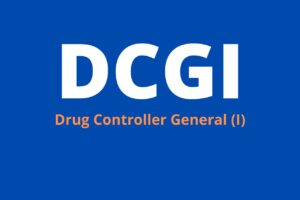Last Updated on January 5, 2024 by The Health Master
Quality Control in Pharma
Quality Control in Pharma: In a recent revelation, the Gujarat Food and Drug Control Administration (FDCA) has shed light on a critical issue plaguing the pharmaceutical industry.
An astonishing 45% of drug samples have been found to fail quality tests, with the dissolution test identified as the primary culprit.
This revelation underscores the pivotal role that dissolution tests play in ensuring the efficacy and safety of pharmaceutical products.
The Importance of Dissolution Test
The dissolution test in quality control in pharma is a fundamental procedure that determines the rate at which a drug is absorbed in the human body.
This process is especially crucial for solid oral dosage forms and certain other categories of pharmaceutical products.
It is a parameter that demands strict compliance throughout the entire life cycle of product development, including release testing and ongoing stability assessments.
Unearthing the Root Cause in quality control in pharma
The Gujarat FDCA Commissioner, Dr. H. G. Koshia, has emphasized that the majority of quality test failures stem from dissolution test quality control in pharma.
This trend, observed recently, brings to light the urgent need for manufacturers to equip themselves with a comprehensive understanding of dissolution science.
Implementing this knowledge during product development can significantly mitigate the risk of dissolution-related failures.
Ensuring Long-Term Compliance
Over the course of a product’s life cycle, various changes occur, ranging from alterations in API/excipient sources to modifications in formulation and dissolution methods.
It is imperative that aspects like in vitro-in vivo correlation and adverse drug effects are meticulously monitored.
Post-approval inspections are particularly critical, as any discrepancies related to dissolution data integrity, bioavailability, or bioequivalence (BA/BE) data could have severe consequences for both patients and manufacturing companies.
The Need for Continual Monitoring
Each medication boasts its own unique delivery system, necessitating regular dissolution tests to ascertain its efficacy and absorption rate within the human body.
Experts in the field have advocated for the establishment of a Center of Excellence for Dissolution Science in collaboration with industry partners.
Such a center would serve as a cornerstone for product development, ensuring the highest standards of quality and efficacy are met.
Conclusion
The revelation of a significant number of drug samples failing quality tests due to dissolution test failure is a wake-up call for the pharmaceutical industry.
Understanding and prioritizing dissolution tests throughout the product development life cycle is not merely a regulatory requirement; it is a critical step towards ensuring the safety and efficacy of pharmaceutical products.
By embracing the science of dissolution, manufacturers can proactively address quality control concerns and ultimately deliver safer, more effective medications to patients worldwide.
Disclaimer: This article contains information derived from the source mentioned below. Our team utilized an AI language model to rewrite and present the news or article in a unique format.
Difference: Disintegration and Dissolution test in pharma industry
Dissolution test: Importance in Pharma Industry
IPC includes dissolution test in IP: Read details
Drug Recall: Sucralfate Oral Suspension recalled due to this reason
Antimicrobial Resistance in India: The Alarming Rise and Potential Solutions –ICMR
Govt Job: CDSCO Recruitment 2023 – Lucrative Opportunity
Booming Growth in Indian Pharma Exports: August 2023 Report
Training of Technical Staff of Pharmaceutical Industry
USFDA issues Form 483 observations to Cipla’s Subsidiary
Quality Assurance Vs Quality Control in the Pharma Industry
Drug alert: 48 out of 1166 samples declared as NSQ in August 2023










